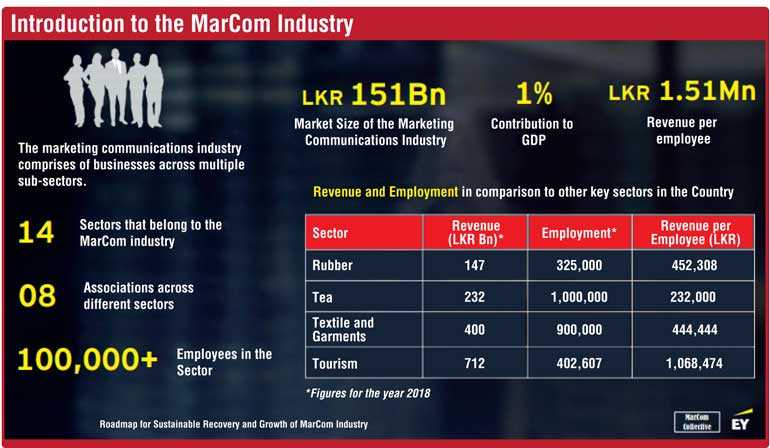Thursday Feb 19, 2026
Thursday Feb 19, 2026
Tuesday, 20 April 2021 00:08 - - {{hitsCtrl.values.hits}}

The pandemic thrust many industry sectors into crisis, with many being supported by the Government with financial handouts. However, it is interesting to note the industries that are bouncing back are those that collaborated and supported each other through their industry bodies.
The MarCom Collective in Sri Lanka bears witness to what can be achieved through genuine collaboration and Quantum Consumer Solutions was proud to be part of the team.
Fourteen industry sectors came together for the first time in history to work towards a common goal to ‘prevent any individual in the industry suffering permanent loss’. The power of this collaboration was best demonstrated when these efforts attained policy change.
The Collective consists of advertising, media, production, market research, printing, event management, outdoor advertising, publications, media buying, digital and PR businesses operating across the island.
We are a complex ecosystem of 14 interdependent segments. The industry is networked across the island and consists of MSMEs primarily. Given the interdependent nature of this industry structure, one depends on the other to succeed.
It takes a long chain of activities to make an impact. We design brands, give it identity, engage the consumer and stimulate purchase. Consumption is what keeps an economy ticking – the MarCom Collective plays a pivotal role at the intersection of demand and supply, stimulating consumption.
Mass communication is a catalyst of behaviour change as well as a guardian of cultural values and heritage. Media sets the tone and pace of society. Whether in crisis or in boom times communication is vital in managing sentiment and reputation of people, brands and even the country.
The Collective was formed in the thick of the COVID lockdown; it was sparked off by Thayalan Bartlett, CEO of Mullenlowe, who felt something needed to be done to restore the many individuals that were losing their livelihoods. As he shared this burden with fellow industry colleagues, there was an immediate readiness, from virtually all, to work together to restore the industry. Thanks to Zoom meetings we made rapid progress.
The approach we took was strategic and long-term, it was beyond overcoming the impact of the pandemic. We wanted to inform policy makers of the value we add to the economy and the human capital that exists in this industry. We contracted with Ernst & Young to develop a short, medium and long-term road map for the MarCom Industry. This was a mammoth task, as it had to begin with sizing the industry and calculating its contribution to the economy. The facts about the industry opened the eyes of policymakers to realise the role and value of this industry.
These are telling statistics. It is an industry that provides over 100,000 individuals a livelihood and contributes 1% to GDP. The size of the industry is $ 151 billion, accounting for 57.8% of the professional services industry.
Uncovering value is the strategic role of the MarCom Industry and that is exactly what we did, in engaging the policy makers.
The Government has accepted one of the key proposals submitted by the Collective – double tax deduction of marketing and communication spend. The objective of this being, to encourage business entities to spend on marketing more lavishly, in order to stimulate consumption. Demand creation being the first step in the restoration of the economy.
On 9 April the MarCom Collective was formalised with the appointment of the inaugural Board and an Advisory Board of eminent corporate leaders. The journey of collaboration has just begun with the formalising of the Board. The Collective will consist of members who are industry associations.
The call out is to all individuals and companies in the MarCom industry to be part of their respective industry body, in order to work together for further upliftment of the sector.
(The writer is Partner at Quantum Consumer Solutions.)